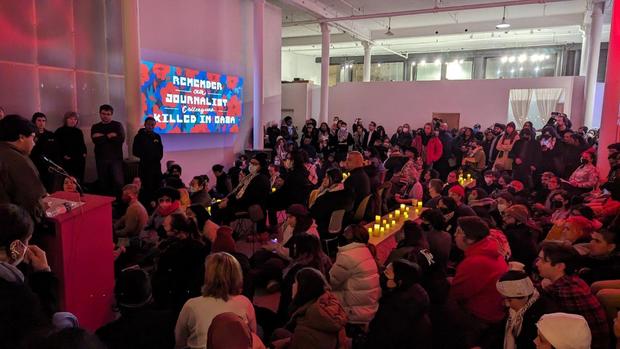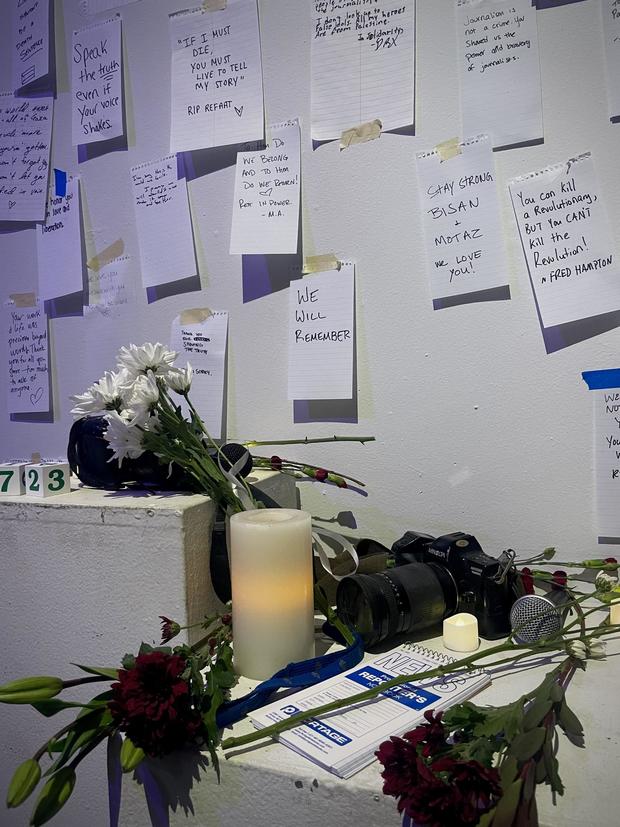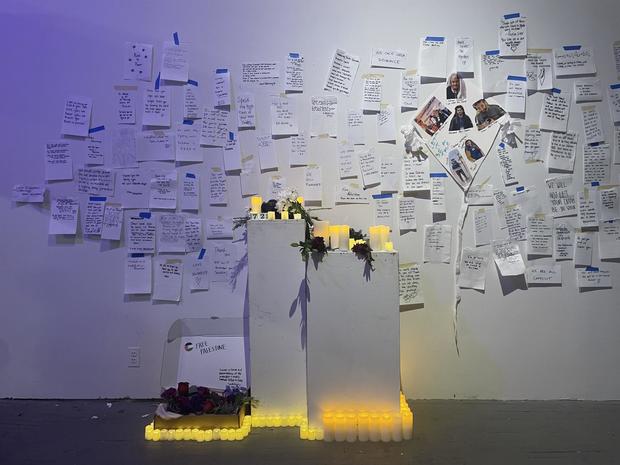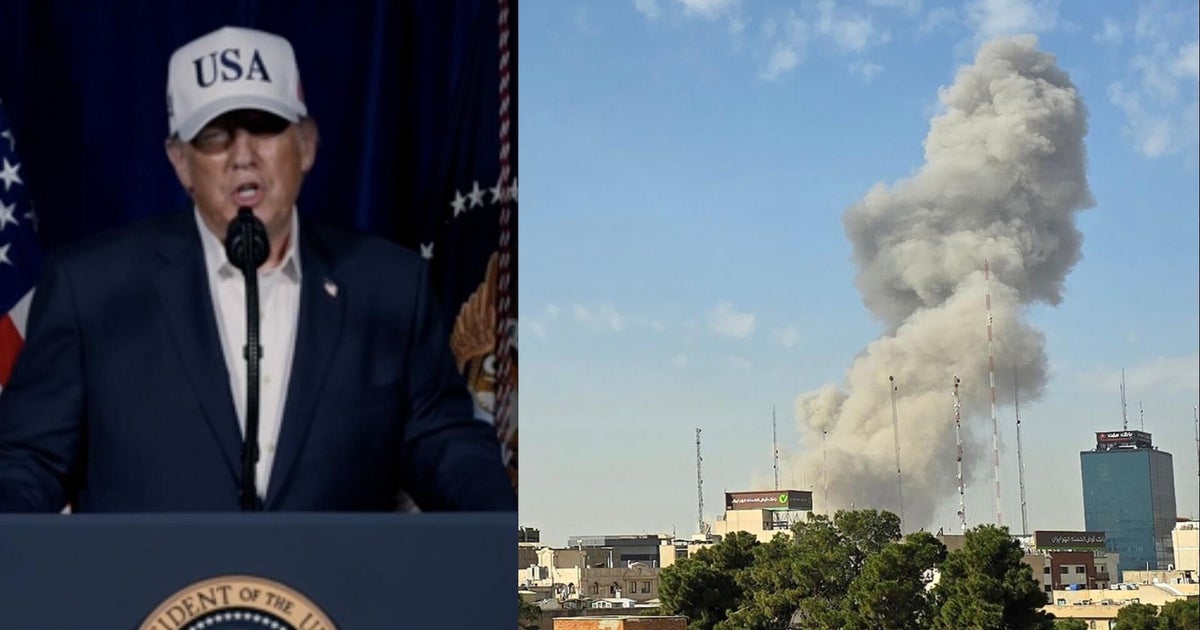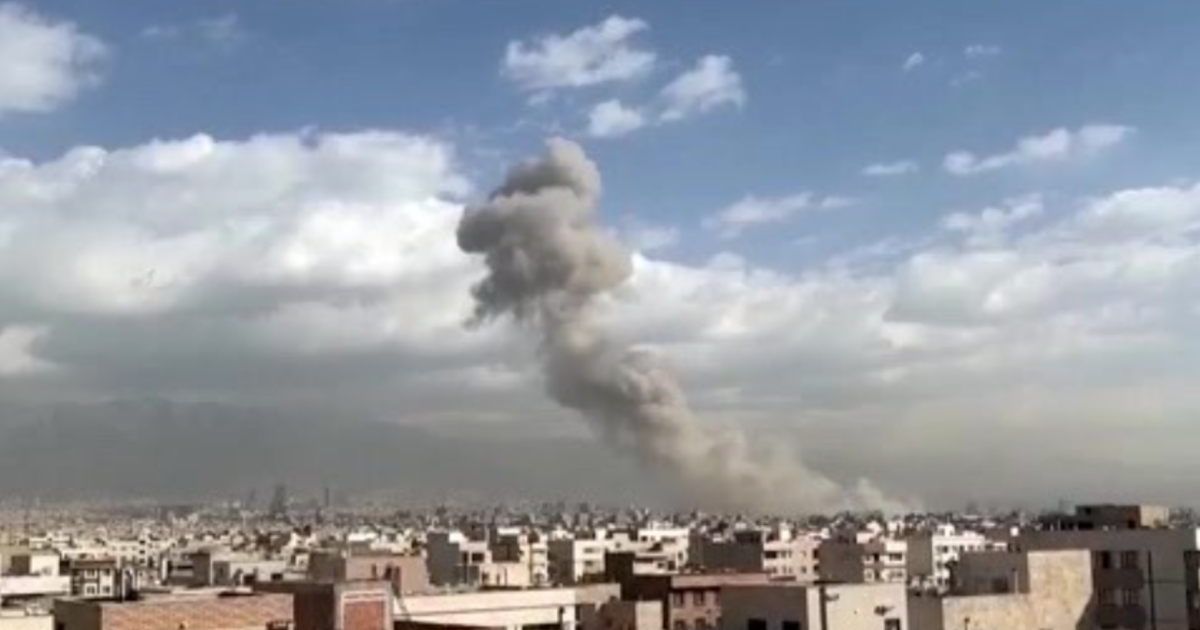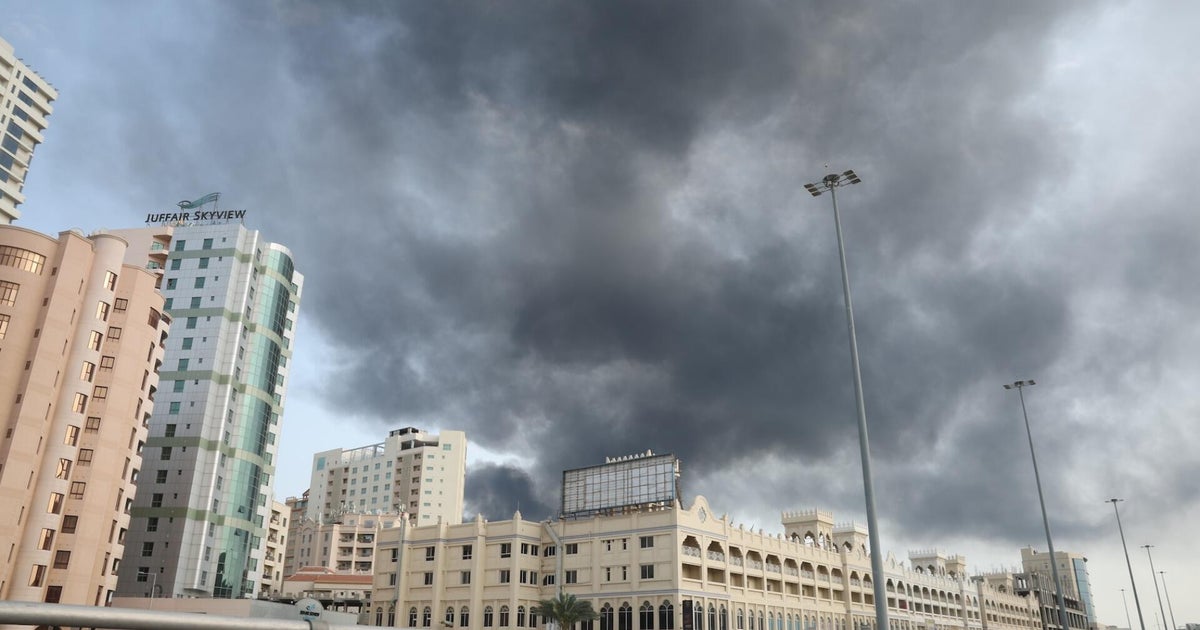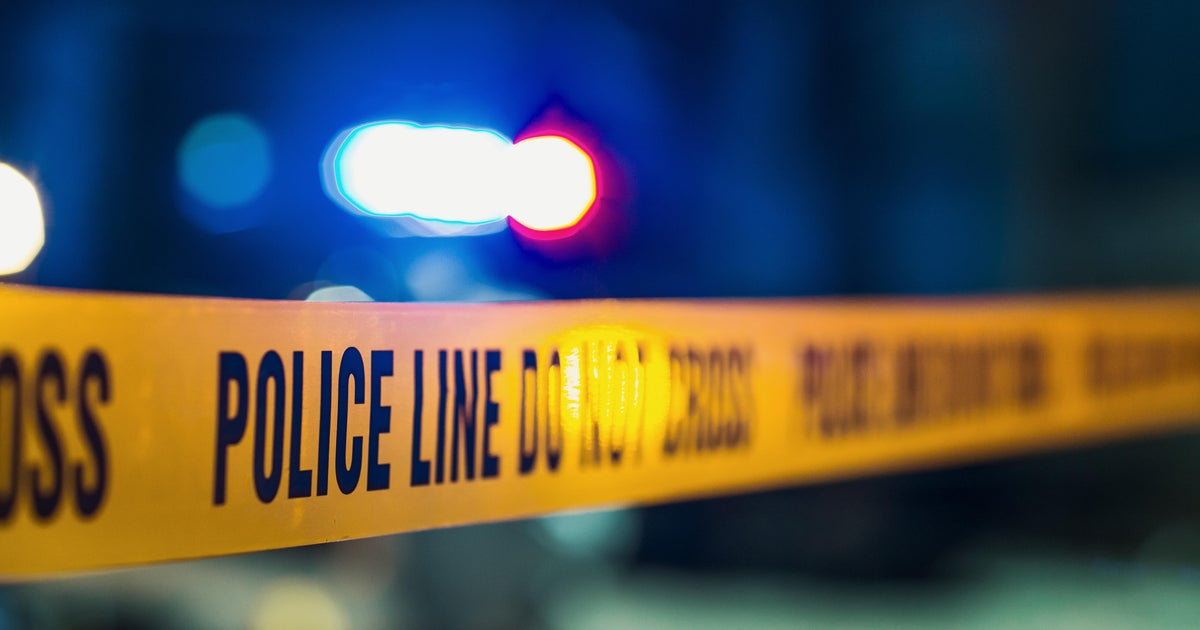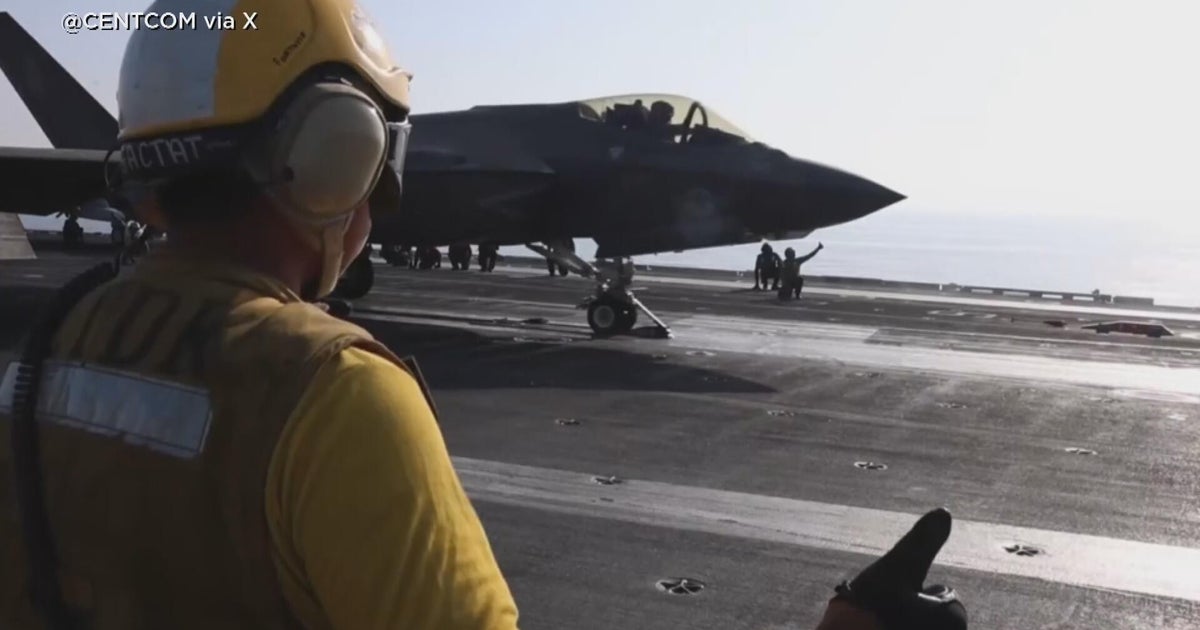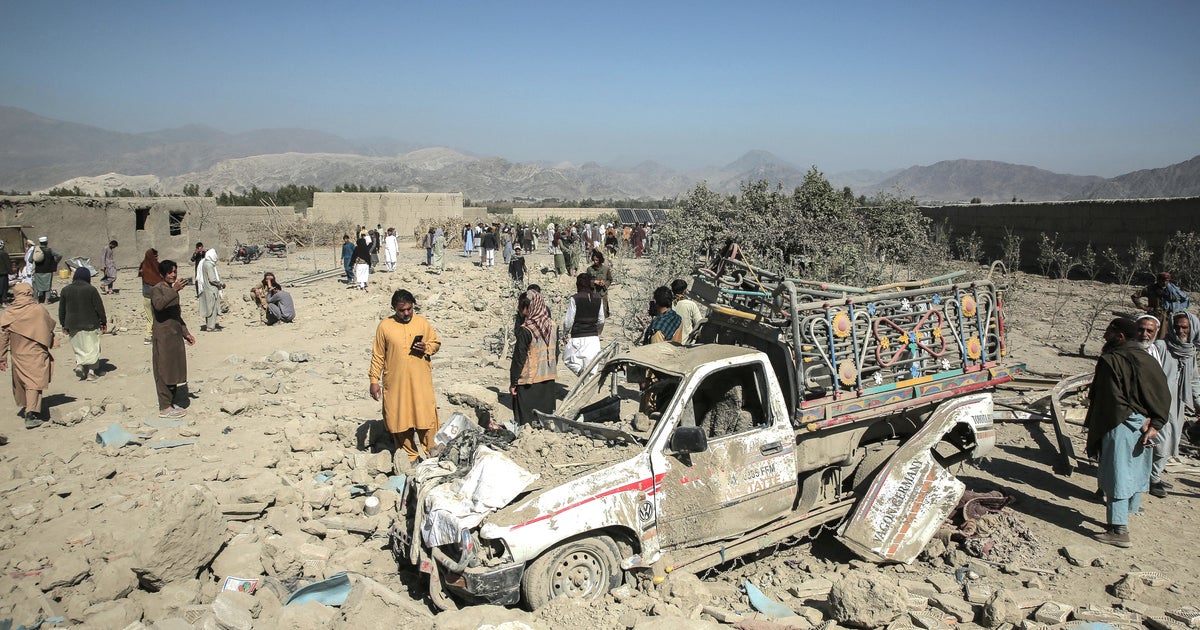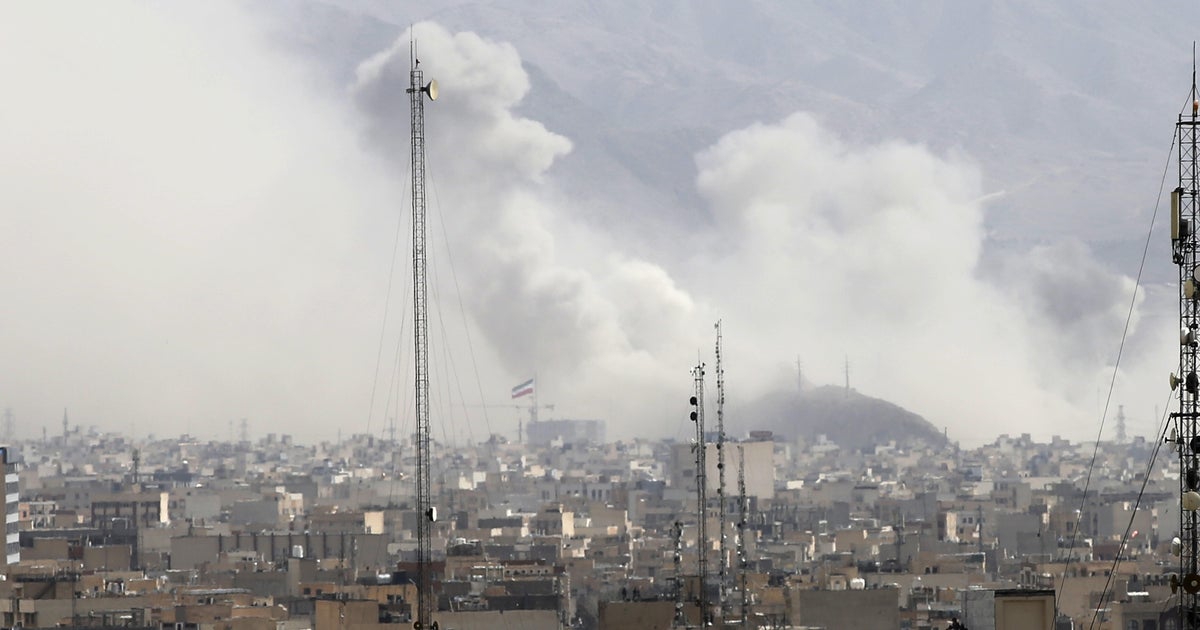Chicago journalists hold vigil for colleagues killed in Gaza and Israel
CHICAGO (CBS) -- Yousef Maher Dawas, a writer for We Are Not Numbers (WANN), a youth-led Palestinian nonprofit project.
Salam Mema, the head of the Women Journalists Committee at the Palestinian Media Assembly.
Issam Abdallah, a videographer for Reuters.
These are a few names of the dozens of journalists killed in the latest war in Gaza.
Since Oct. 7, at least 64 journalists and media workers have been killed in Israel and Occupied Palestine, according to the Committee to Protect Journalists (CPJ), making it the deadliest two months for journalists since the nonprofit began collecting data in 1992.
The number of journalists killed in the past two months in the war in Gaza has surpassed the amount killed in the Vietnam War, which lasted two decades, according to the International Federation of Journalists (IFJ). As of December 14, their count of journalists killed is up to 71.
Chicago journalists came together on Monday in a Pilsen art gallery to honor their fallen colleagues overseas. A group of a dozen newsrooms organized the candlelight vigil for fellow journalists and the public alike to grieve and mourn.
Hundreds quickly packed the Chicago Art Department to capacity. Dozens filed in a line outside, waiting to get in.
"These journalists — our colleagues — were reporters, photographers, camera operators, TV and radio correspondents, editors, producers, and others who make journalism possible," Carlos Ballesteros from Injustice Watch said, in the opening speech.
"Each is represented by a candle here today. Some were killed while doing their jobs; others massacred with their families as they slept," Ballesteros said.
The names were read aloud, followed by a moment of silence – one second for every journalist.
Four Israeli journalists were killed, three by Hamas during their attack on Oct. 7, according to CPJ.
Three Lebanese journalists were killed by Israeli airstrikes or shelling.
More than 50 Palestinian journalists were also killed by airstrikes, shellings or snipers.
They are among the more than 18,000 Palestinians killed in Gaza and around 1,200 Israelis and foreigners killed in Israel.
Journalists, who are citizens, are protected under international humanitarian law.
Many journalists and media organizations, including ones in Chicago, have called for protection for journalists working in Gaza.
Rummana Hussain, columnist and part of the Chicago Sun-Times Editorial Board, was the next speaker at the vigil.
"The late Shireen Abu Akleh, a Palestinian TV news correspondent with Al-Jazeera who was killed by a bullet fired by an Israeli sniper last year, said it may be hard to change the reality of her people, but at least she could bring their voice to the world," Hussain said.
"How many more Abu Aklehes must we hear about?" Hussain said.
The vigil was held as a space to also express solidarity with the journalists still reporting in Israel and Gaza, as well as to discuss how local reporters can hold themselves accountable, an organizer told CBS 2.
"As journalists in the U.S., we have an even greater responsibility to the truth in this moment. Our taxes are paying for the bombs dropped on Gaza," Ballesteros said.
"If a journalist makes a call for ceasefire so that colleagues can continue to report from Gaza, it should be seen as a bold position in support of press freedom," said Maya Dukmasova, senior reporter at Injustice Watch.
"It is in this spirit that we call for an end to censorship and retaliation against media workers speaking out against this war," Dukmasova said.
Dukmasova and another speaker, Yasmin Zacaria Mikhaiel, shared that they both know of freelancers and local journalists who have been reprimanded for speaking up about the humanitarian crisis in Gaza or have had to choose between expressing their values and future employment.
People from a variety of workplaces have lost their jobs for posting their thoughts about the war, such as Chicago Arab-American attorney Jenan Chehade. Her job offer was rescinded over "public statements" made about the war that were "inconsistent with [their] core values", according to the law firm. She said she was standing up for Palestinian rights.
CPJ has tracked numerous forms of censorship: attacks, threats, assaults and arrests of journalists covering the war in Gaza. Journalists have had family members targeted and killed.
One of those is Al-Jazeera's Wael Al-Dahdouh. He received the call while on air that his wife, children, and grandson were killed after they relocated to an area they were told was safe.
Airstrikes, extensive power outages, disrupted communication networks, supply shortages, including lack of food, clean water and shelter put reporters in Gaza at high risk. CPJ has said Palestine is one of the most dangerous places for a journalist to do their job.
"If death doesn't come from airstrikes, it will come from starvation," Palestinian journalist Hind Khoudary said in a report for the World Food Programme.
"I don't feel safe in Gaza no matter what, even while sleeping I don't feel safe, but especially when wearing the press vest and helmet, I don't feel safe," Palestinian journalist Plestia Alaqad posted to Instagram.
Alaqad has since left Gaza, saying it was one of "the hardest decisions" she ever made, making the choice to protect her family.
"Every time I heard of a journalist's family getting targeted in their home merely for being associated with family members, I became fearful. I was fearful that at any moment, I would hear that my parents had been targeted," she said.
Back in Chicago at the vigil, words of encouragement were taped to the wall for the journalists still reporting in Gaza. "Stay strong Motaz and Bisan!" one letter read. Motaz Azaiza and Bisan Owda are two Palestinian journalists in Gaza who have gained millions of followers over the past two months. The two, among other English-speaking journalists like Hind Khoudary, Noor Harazeen, Ali Jadallah, and Yousef Mema have posted daily videos and photos that show the horrific conditions Palestinians have been forced to live under, including themselves.
Many times, the journalists have been close to airstrikes. "Israeli air tanks opened fire directly on us," Azaia captioned a video where the sound of bullets can be heard as he and at least one other journalist wearing their press jackets run away. In another video, it is dark out, and again the sounds of a bullet zips by. "That shot was so close to blowing my head," he wrote.
The letter to Bisan and Motaz is among dozens of others, many of which are odes to the journalists who have been killed.
"If I die, you must tell my story. RIP Refaat," one wrote, referring to the poet Refaat Alareer who was killed in an Israeli airstrike on Dec. 7.
"You can kill a revolutionary, but you can't kill the revolution," someone else wrote, quoting late Chicagoan Fed Hampton, leader of the Illinois Black Panther Party who was killed by police in 1969.
The vigil in Chicago on Monday closed with Yasmin Zacaria Mikhaiel, digital producer at City Bureau, calling for local newsrooms to reflect internally and the importance of diverse representation.
"As a first-generation person of the Middle Eastern diaspora, I know that I have a cultural competency that is valued when I write on the arts but questioned when I write on politics or organizing in my community," Mikhaiel said.
"Newsrooms need to recognize there is power in reporting on topics that pull from lived experiences and that align with our identities. Fair, unbiased coverage means life or death for Palestinians in Gaza and in this country, and as journalists, we must do more to lift up Middle Eastern voices in our own newsrooms and challenge existing news coverage, or the lack thereof," they said.
Mikhail reminded the room of 6-year-old Wadea al-Fayoume, who was stabbed to death by his mother's landlord, who said he was angered by the news he heard about the Israel-Hamas war, as well as his Muslim faith.
"Our words as journalists, in the end, have power – the power to harm, the power to heal, the power to mend," Mikhaiel said.
At the end of the night, dozens of letters surround an altar that bears flowers, a camera, and a notebook. The altar will be up through April.
